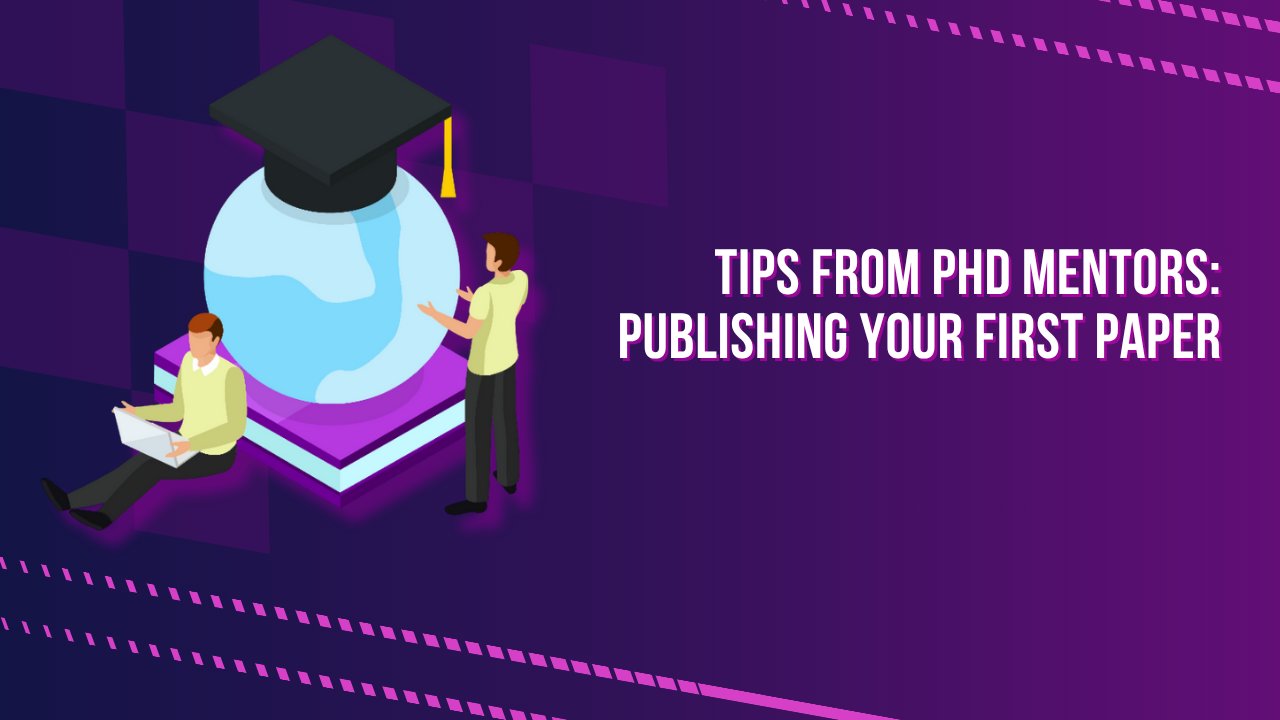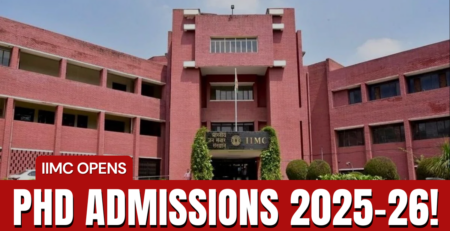04Jun

Publishing your first academic paper is one of the most exciting — and daunting — milestones in your PhD journey. It’s a rite of passage that validates your research, builds your academic profile, and opens the door to future collaborations and funding opportunities. But how do you go from raw data and drafts to a peer-reviewed publication? In this blog, we share Tips from PhD Mentors—seasoned scholars who’ve guided many through the same journey—to help you successfully publish your first research paper. Whether you’re just starting your PhD or nearing completion, these Tips from PhD Mentors will guide you step by step through the publishing process with clarity and confidence.

Before diving into the tips, it’s essential to understand why publishing during your PhD is important:
Mentor Tip:
“Start with a question that excites you and has a clear gap in existing literature.” – Dr. Meera J., Senior Research Supervisor
Your chances of getting published improve when your research addresses a novel problem or offers a fresh perspective on an ongoing academic debate. Avoid topics that are overly saturated or too broad. Use tools like Google Scholar, Scopus, and Web of Science to check what’s already published.
Mentor Tip:
“A weak literature review is often the reason a paper gets rejected.” – Prof. N. Ramesh, Journal Reviewer
Conduct a comprehensive review of recent and relevant papers in your field. This not only informs your research design but also ensures your work is contextualized properly. A well-written literature review shows reviewers that you’re aware of current conversations and research gaps.
Mentor Tip:
“Always match the journal to your research — not the other way around.” – Dr. Priya Das, Journal Editor
Don’t just aim for the highest-impact journals; aim for the most appropriate ones. Ask:
Tools like Journal Finder (Elsevier) and Springer Journal Suggester can help. Also, seek guidance from your supervisor or academic peers.
Mentor Tip:
“Nothing annoys reviewers more than poor formatting.” – Dr. A. Ghosh, Peer Reviewer
Each journal has specific guidelines for structure, citation style, word count, tables, and figures. Following these meticulously can prevent your paper from being desk rejected before peer review.
Mentor Tip:
“Your abstract is your sales pitch — make it count.” – Dr. Kavitha S., PhD Mentor
The title and abstract are often the first (and sometimes only) parts that editors and reviewers read. Keep them concise, clear, and keyword-optimized. Highlight:
Use keywords that are commonly searched in your field to boost discoverability.
Mentor Tip:
“Clarity beats complexity. Don’t try to sound smart — be precise.” – Prof. L. Khan, Research Coach
Good academic writing is clear, concise, and logically structured. Use active voice when possible. Break down complex ideas into digestible chunks. Avoid jargon unless it’s essential. Tools like Grammarly, Hemingway App, and Ref-N-Write can help polish your manuscript.
Mentor Tip:
“Reviewers want proof, not opinions.” – Dr. Reena S., Publication Trainer
Every claim must be supported by either your data, previous studies, or logical reasoning. Include visuals like charts, graphs, and tables to strengthen your arguments. Make sure your data is clean, reproducible, and well-documented.
Mentor Tip:
“A second pair of eyes always finds what you missed.” – Dr. Vinod P., Thesis Advisor
Before you submit your paper, get feedback from:
Consider presenting your work at a conference or seminar to get live feedback. Peer review within your institution can simulate the actual journal review process and prepare you for critiques.
Mentor Tip:
“Don’t take criticism personally — use it to improve.” – Dr. Mahesh N., PhD Guide
Receiving critical comments from reviewers is part of the process. Respond to each point respectfully in a rebuttal letter, explaining how you’ve addressed it. If you disagree with a comment, provide a clear justification with references or data.
“Rejection is not the end — it’s a redirection.” – Prof. A. Iyer, Research Ethics Expert
Many great papers were rejected before being accepted elsewhere. If your paper gets rejected:
Persistence is key. Most researchers face rejection before their first successful publication.
Mentor Tip:
“Academic integrity is your most valuable asset.” – Dr. Nandini P., Ethics Committee Member
Ensure that your work is original. Always cite your sources, and don’t manipulate data to fit hypotheses. Use plagiarism checkers like Turnitin or iThenticate to maintain ethical standards.
At Kenfra, we support PhD scholars with advanced plagiarism checking tools to ensure compliance with journal and university standards.
Mentor Tip:
“Visibility matters. Make your work discoverable.” – Dr. S. Balan, Research Visibility Coach
After publication, share your paper on:
Building an author profile boosts your academic footprint, making it easier for collaborators, peers, and future employers to find and cite your work.
Publishing your first paper is challenging, but it’s not a solo mission. Seek help from your PhD mentors, writing workshops, or professional services like Kenfra, which offer end-to-end support — from topic selection to publication in Scopus, SCI, or other reputed journals. Tips from PhD Mentors can provide clarity on where to begin and how to structure your work effectively. With the right guidance, tools, Tips from PhD Mentors, and mindset, you’ll move from confusion to confidence — and from a blank document to a published paper.
Kenfra Research understands the challenges faced by PhD scholars and offers tailored solutions to support your academic goals. From topic selection to advanced plagiarism checking.

In today’s academic world, understanding the Ethics of co-authorship and plagiarism is essential for every researcher. Whether you are a... read more

Creating a research-centric academic CV is a crucial step for anyone applying to a PhD program. Whether you're fresh out... read more
It's wonderful to hear that there has been a significant increase in the enrollment of girls in engineering courses in... read more

Research problem identification is the first and most crucial step in conducting impactful research, as research problem identification sets... read more

The Indian Institute of Mass Communication (IIMC) has started the online application process for its IIMC PhD Admissions 2025–26 for... read more

A writing group can be a game-changer for PhD scholars. It provides a supportive environment to share ideas, receive... read more
To meet Sustainable Development Goals , 260 institutes to offer courses in climate change - Kenfra It's commendable that there is... read more
Indian Institute of Technology Mandi IIT Mandi, officially known as the Indian Institute of Technology Mandi, is one of the... read more
5 Fully Funded Ph.D. Programs at US Colleges and Universities The specific details about fully funded Ph.D. programs can change, and... read more
WhatsApp us
Leave a Reply